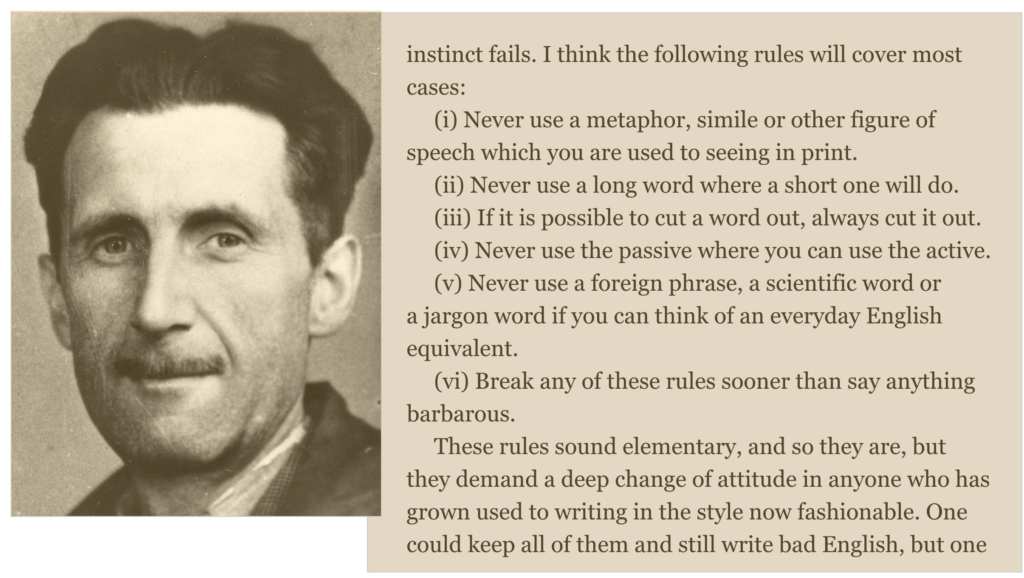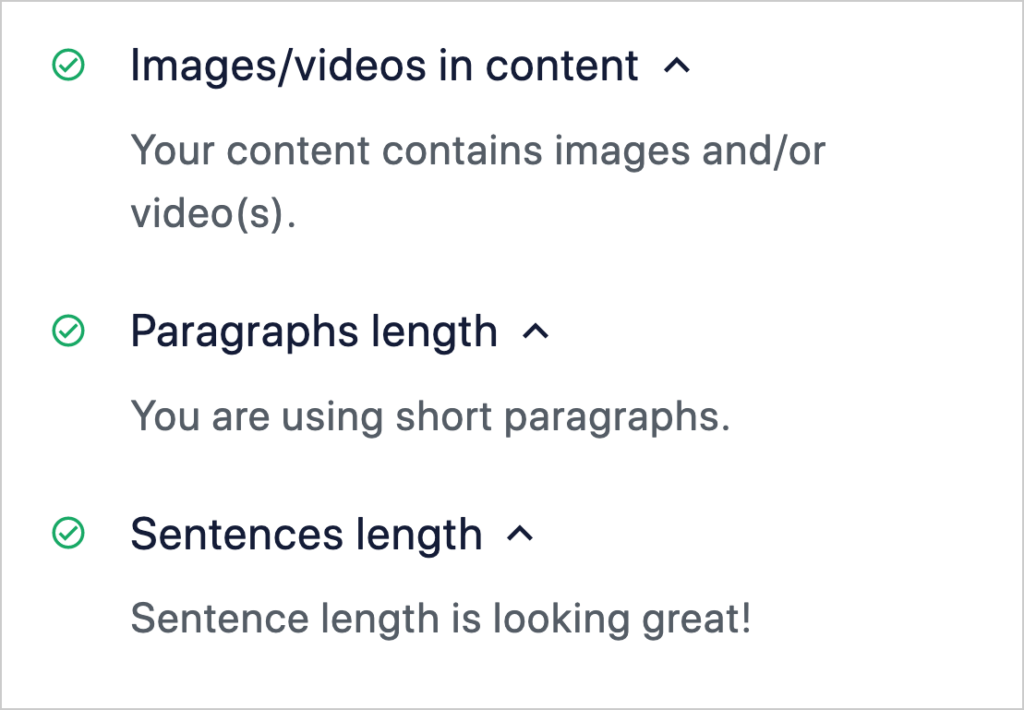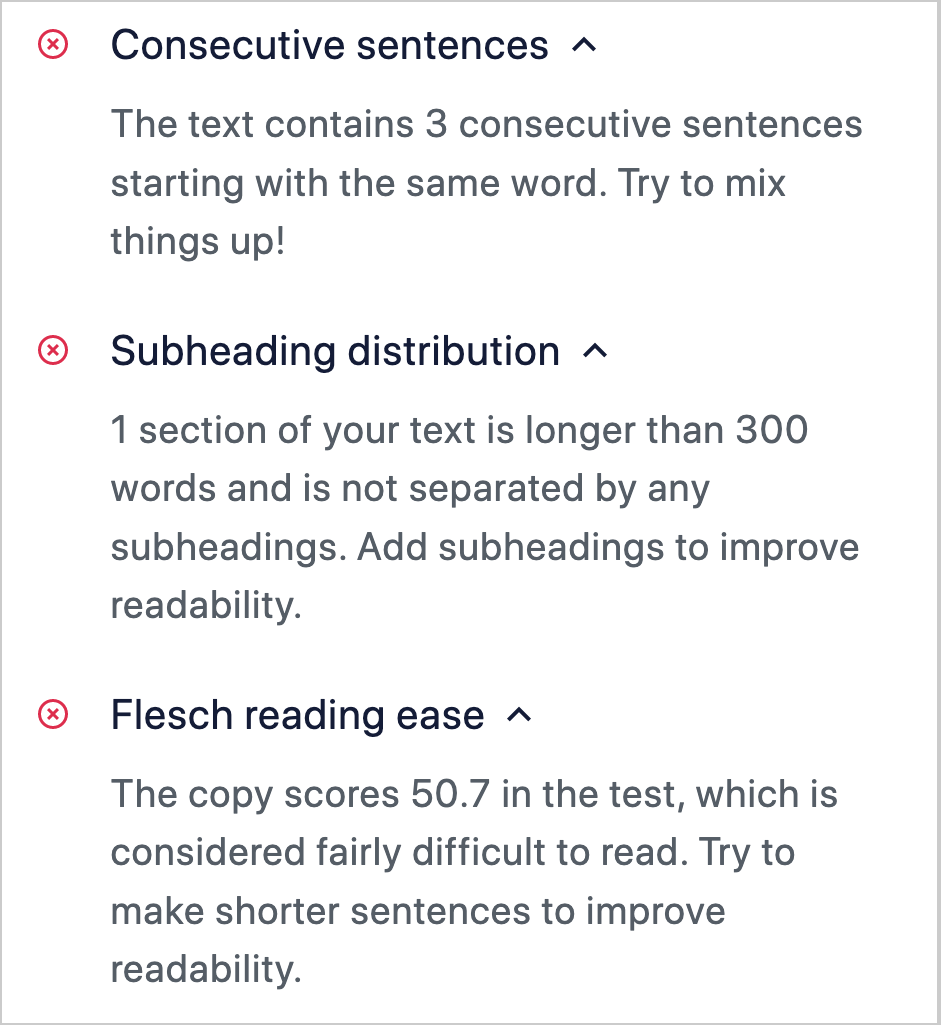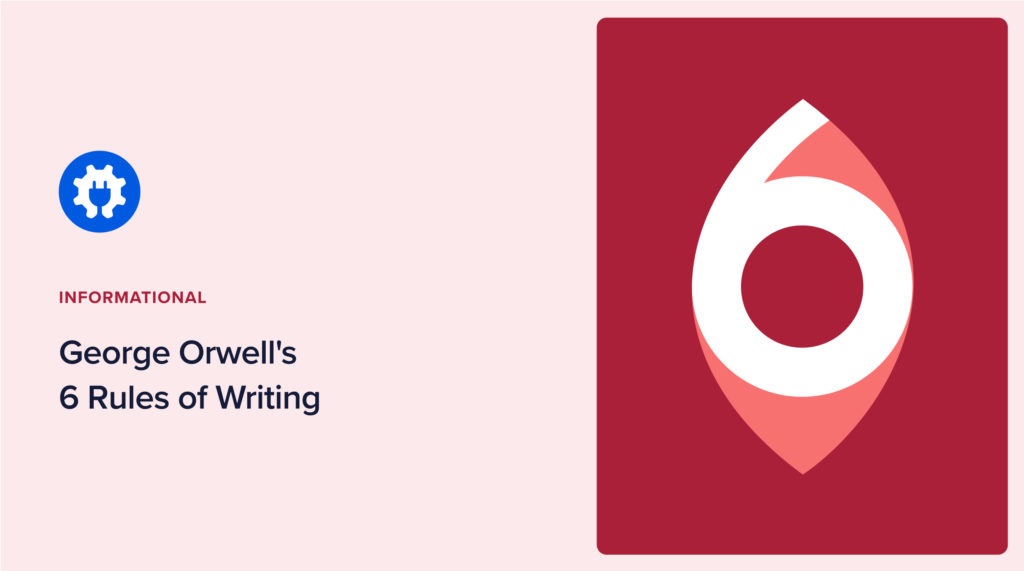George Orwell’s 6 rules for writing are simple and easy to remember. And they’re used by everyone from SEO professionals to university students.
These rules are similar to those found in other classic guides to good writing, such as The Elements of Style.
If you’re interested in improving your writing, then Orwell’s rules for writing should be your companion. After all, good writing is the foundation of good SEO and engagement.
In This Article
George Orwell’s 6 Rules for Writing
- Never use a metaphor, simile, or other figure of speech which you are used to seeing in print.
- Never use a long word where a short one will do.
- If it is possible to cut a word out, always cut it out.
- Never use the passive where you can use the active.
- Never use a foreign phrase, a scientific word, or a jargon word if you can think of an everyday English equivalent.
- Break any of these rules sooner than say anything outright barbarous.
Politics and the English Language
Orwell’s rules for writing come from his essay “Politics and the English Language,” published in 1946 by Horizon magazine.
The essay is about the degradation of the English language, which Orwell links to the debasement of politics. In his view, both reinforce one another.
“When there is a gap between one’s real and one’s declared aims, one turns, as it were instinctively, to long words and exhausted idioms, like a cuttlefish squirting out ink.”

Clear language promotes clear thinking and vice versa. Both lead to “political regeneration.”
Orwell’s essay includes examples of bad writing, characterized by “avoidable ugliness,” “staleness of imagery,” and “lack of precision.”
The author derided the use of clichés and “stale metaphors,” which, when mixed, highlight a lack of thoughtfulness.
Orwell concluded, “Modern English, especially written English, is full of bad habits which spread by imitation and which can be avoided if one is willing to take the necessary trouble.”
About George Orwell
George Orwell was born in Motihari, India, in 1903 and died in London, England, in 1950. His birth name was Eric Arthur Blair; George Orwell was a pseudonym.
His first book, Down and Out in London and Paris (1933), came on the heels of “writing novels and short stories which no one would publish.”
Following the 1945 publication of his anti-Stalinist novel Animal Farm, Orwell became famous.
Over his lifetime, Orwell wrote 6 novels, 3 non-fiction books, and hundreds of articles and essays.
His final novel, Nineteen Eighty-Four, distills Orwell’s observations and warnings about totalitarianism. Published after the end of World War II, the book coined terms still in use today, such as doublethink, Big Brother, and newspeak.
Orwell is among the foremost English writers of the 20th century, whose ranks include W.H. Auden, T.S. Eliot, and Thomas Hardy.
How to Improve Content Quality
As Orwell noted, clear writing aids clear thinking. Clear writing is also a feature of quality content.
And content quality is the most important ranking factor in SEO. So, improving your content will help you achieve your website goals and rank higher in search results.
This is where a plugin like All in One SEO (AIOSEO) comes in.

It automatically analyzes and scores your content for readability and SEO.
While it can’t replace you as a writer, All in One SEO will flag indicators of poor writing, like consecutive sentences that begin with the same word.
For each web page on your site, All in One SEO will show you what you’re getting right.

And what needs improvement.

Curious about how the analysis works?
Here’s more information on the readability checks that All in One SEO makes.
- Paragraph length: Target: 120 words maximum. Usability tests have shown that short paragraphs are easier to read on screens than long ones.
- Sentence length: Target: 20 words. AlOSEO checks for excessive sentence length. Good writing often combines a mix of sentence lengths. It’s possible to vary lengths and pass this check.
- Transition words: Checks for the presence of transition words which improve the flow between content sections. Examples of transition words are: also, likewise, for example, furthermore, and however.
- Consecutive sentences that begin with the same word are flagged. Avoiding this will help make your prose less repetitive and more readable.
- Subheadings: Target: 1 subhead for every 300 words. If you have long passages without subheads, the plugin will suggest you add 1 or more subheadings. This not only helps readers scan your article, but it can improve your SEO too.
- Passive voice: Checks for the presence of the passive voice and recommends using the active voice instead.
- Flesch score: AIOSEO automatically displays each article’s reading ease score. Acting on the readability recommendations will improve your overall score.
- Images/video: If there are none, AIOSEO will recommend adding relevant media. Useful images or videos provide key information. And they break up walls of text, making it easy for users to scan a page.
All in One SEO (AIOSEO) is an established plugin with thousands of 5-star ratings on WordPress.org. Over 3 million people currently use the plugin to improve SEO.
Q&A on Quality Content
Why is content quality an important ranking factor?
Content quality is an important ranking factor because searchers want to find the best content on a topic easily. There are currently almost 2 billion websites. A search for a single topic can easily yield over 100 million results.
Search engine algorithms that reward quality content are designed to help users quickly find the best matches for their search query.
What does Google consider to be quality content?
When evaluating content quality, Google considers many factors, including how well-written and well-presented content is and how helpful or valuable it may be to readers. The personal experience and expertise of the author come into play as well.
One of the best ways to get insights into Google’s algorithms is to browse their 175-page guidelines for their human raters.
Even though Google’s human evaluators don’t change a page’s rank, they help Google know how well their algorithms perform. So the guidelines serve as a good proxy for understanding what Google considers quality content.
What’s Next?
We hope this post inspired you to use Orwell’s rules for writing to improve your prose.
Next, explore our SEO writing tips, discover an easy way to learn SEO, and find out how to capture leads on your site.
If you found this article helpful, please subscribe to our YouTube Channel. You’ll find many more step-by-step tutorials there. You can also follow us on Twitter, LinkedIn, or Facebook to stay in the loop.
Disclosure: Our content is reader-supported. This means if you click on some of our links, then we may earn a commission. We only recommend products that we believe will add value to our readers.

